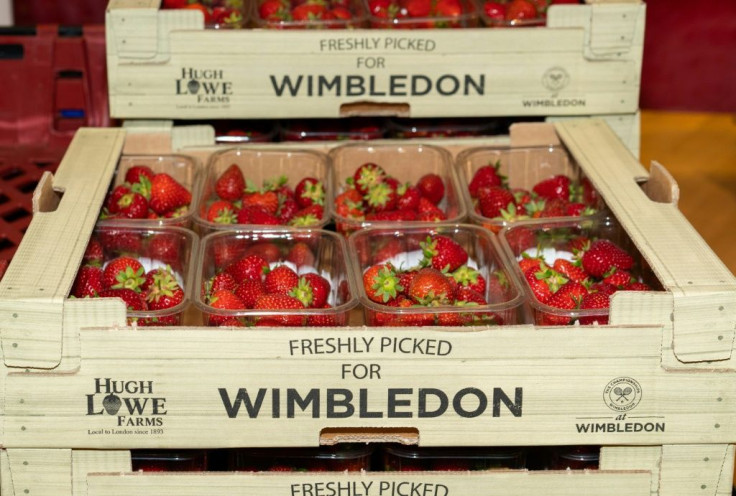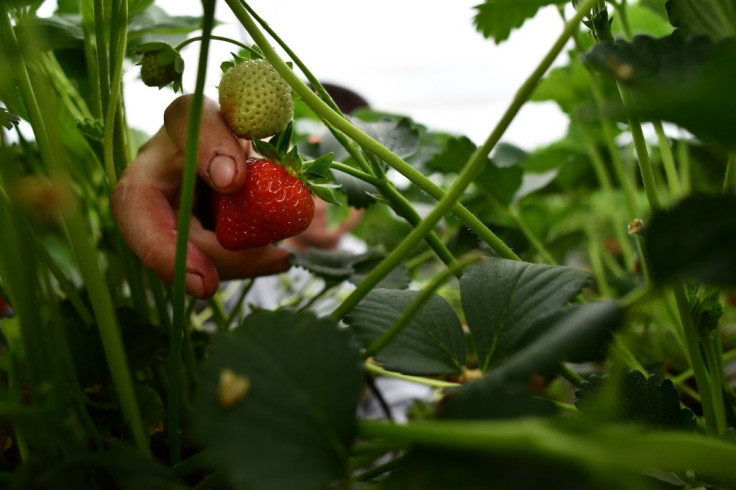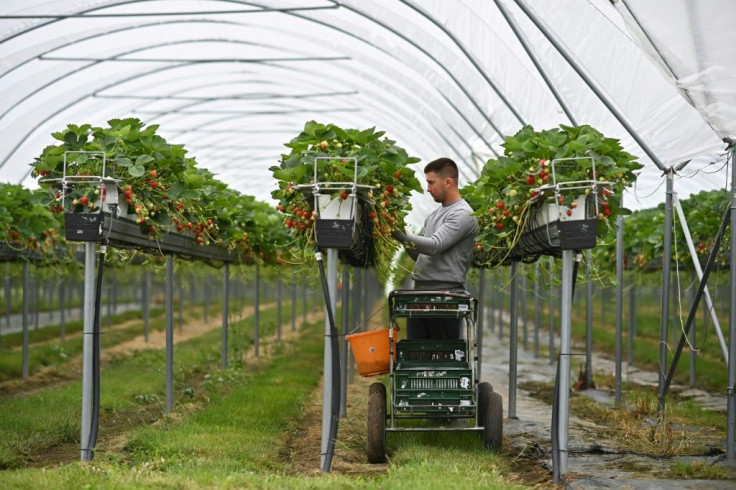Strawberries Are The Only Fruit For Wimbledon Spectators
The players who dominated Wimbledon over the past three decades may have changed, from Pete Sampras and Steffi Graf to Roger Federer and Serena Williams, but one feature has remained constant -- the supplier of its trademark strawberries.
Hugh Lowe Farms, situated near Maidstone in Kent, the county known as 'The Garden of England', has been the sole supplier of the fruit so closely associated with the Grand Slam event for almost 30 years.
It is a family business with present managing director Marion Regan having taken over from her father, Hugh Lowe, who had succeeded his grandfather in running the operation.

Regan told AFP the importance to the business of the 30 tonnes they supply over the fortnight -- a freshly picked delivery arriving in south-west London every day -- is huge even though it is a tiny percentage of their annual sales of 5000 tonnes.
After a year's hiatus due to the championships being cancelled because of the coronavirus pandemic it is all systems go even if last year's strawberries did find eager consumers in the children of key workers, at local schools and food banks.
"To us the Wimbledon order is absolutely pivotal because it is such a high profile event and you realise people from all over the world are eating your strawberries," she told AFP.
"It does rather focus the mind and is slightly nerve wracking as it is a very high-profile strawberry outing."

Regan, whose daughter is the fifth generation of the family to become involved in the business, says there is daily feedback from the chefs and those who procure the fruit for the championships.
"Yes I think I would be wrong to say I don't have nerves over supplying two weeks of the championships," she said.
"It is nerve wracking with us being reliant on the weather and the vagaries of the market.
"Wimbledon food and drink is a very special event with fantastic chefs and people in the food and drink department.

"I do not want to let anyone down with what we are sending."
Her nerves are understandable as the strawberries do not come cheap once they are sold on at Wimbledon.

Based on 2019, spectators were forking out ?2.50 ($3.50) for a minimum of 10 strawberries.
The consumers may be unaware but there is a skilled and tireless set of fruit pickers who have played an integral role in their enjoyment.
The fruit pickers make up the majority of the 700 farm employees through the season which runs from April to November -- a stark contrast to when the strawberries used to peak at the end of June.
"The historic association (between Wimbledon and strawberries) is the strawberry season always peaked at the end of June back in the days when it was a very short season, so it was a 'get them while you can' sort of spirit and associated with the height of summer," she said.
The farm used to rely largely on workers from Bulgaria and Romania.
However, since Brexit they have had to cast their net wider and this year she even has pickers from Barbados.
One of her star pickers, though, is Romanian.
Constantin Anghel has been coming for four years after hearing about the opportunity from a friend.
Anghel goes up and down the lanes of the polytunnel placing the good strawberries into the punnets and the bad ones into a wastebin on the side of his trolley, without damaging the plants.
He averages, he says, 40 kilos an hour.
"It is a very skilled job," says Regan.
"To those starting out that must look almost impossible but everyone who comes has full training and given time to get up to speed.
"It does take a lot of experience to get to that level of skill."
To Regan they may not be dressed in the tennis whites of the Wimbledon players but they do share similarities.
"It (fruit-picking) really suits those who are competitive and sporty as you are measuring your performance against your own targets and others in your team," she said.
"So yes it (them possessing sporting ability) is the best way at looking at it."
© Copyright AFP 2024. All rights reserved.





















